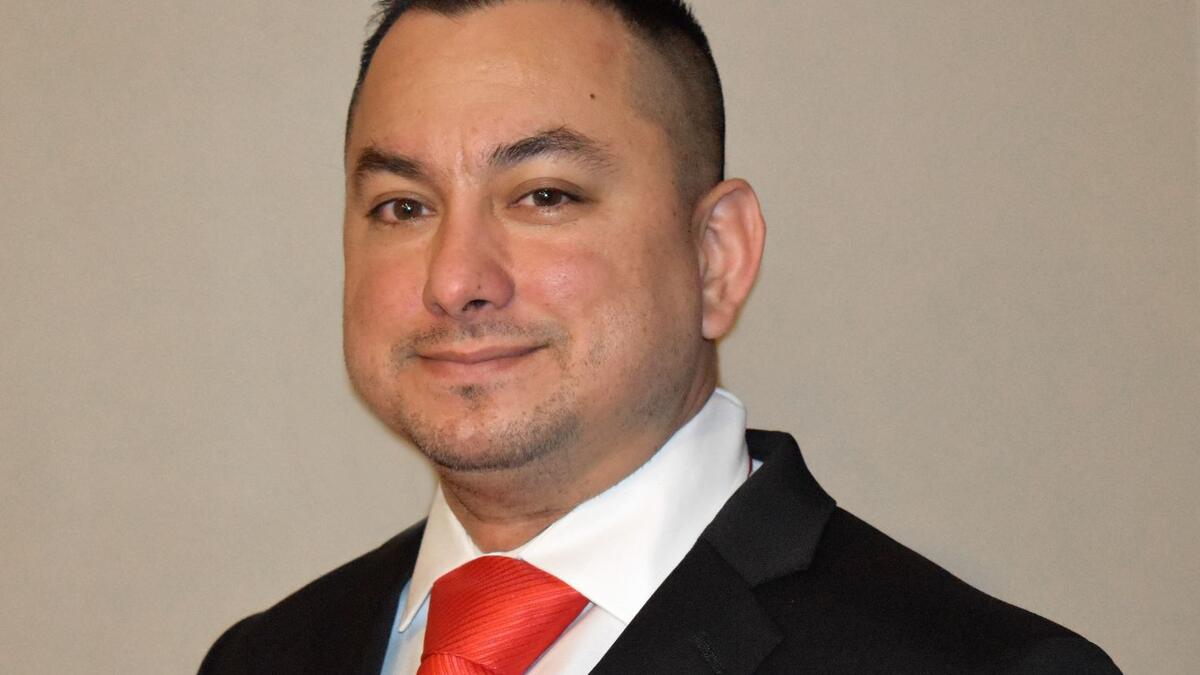Grad pursues degree during Middle East deployment to prepare for role as police chief

Jose Pelaez is a spring 2021 Outstanding Graduate in Interdisciplinary Programs from the Watts College of Public Service and Community Solutions. Photo courtesy Jose Pelaez
Editor's note: This story is part of a series of profiles of notable spring 2021 graduates.
Jose Pelaez was in the Middle East as a member of the U.S. Air Force Reserve when he realized he wanted to be more involved in emergency management and homeland security planning.
Pelaez had been serving as a security forces noncommissioned officer in the reserve. His bachelor’s degree is in criminal justice with experience as a civilian police sergeant.
“I realized that I needed to become a more well-rounded supervisor, not only in the criminal justice field, but also in emergency management in general. Both jobs required that I take charge during different types of emergencies and work along with outside agencies,” said Pelaez, the spring 2021 Outstanding Graduate of Interdisciplinary Programs in the Watts College of Public Service and Community Solutions.
He enrolled at ASU to pursue a Master of Arts degree in emergency management and homeland security with a concentration in homeland security. Pelaez credits his graduate degree, which he is receiving this spring, as contributing to his appointment in February as chief of his local police department in St. Charles, Minnesota.
“Perhaps, my ‘aha’ moment came during my first deployment to the Middle East. I had the opportunity to attend several command-level meetings, where emergency response planning took place involving different response organizations,” he said.
Pelaez chose ASU after researching online graduate schools and receiving strong recommendations from fellow veterans he knew who had attended the university.
"I was looking for a university known for an excellent quality of education and was veteran-friendly. ASU met both criteria,” Pelaez said.
While at ASU, Pelaez learned the importance of building strong partnerships in the emergency management and homeland security fields.
“Information sharing and collaboration with outside stakeholders are crucial to prepare, respond and recover from disasters. Every stakeholder brings unique skills, knowledge and abilities needed to effectively manage a crisis,” he said.
His advice to students: “Utilize proper time management and proactively organize class assignments. I have learned that one can easily fall behind with course work while studying online; it takes a lot of self-discipline.”
Read on to learn more about Pelaez’s experience as an ASU student:
Question: Which professor(s) taught you the most important lesson while at ASU?
Answer: Perhaps the most important lesson I learned was from Dan Wilkins, who teaches CPP 575, U.S. cybersecurity and information security policy. Evolving technologies have brought us many benefits and conveniences; however, individuals and criminal organizations continue to exploit these technologies. Cybercriminals are taking advantage of the limited international oversight on these new technologies to leverage their criminal activities. It is very concerning to see how much criminals can do through the dark web. Additionally, our critical infrastructure has become very much dependent on these new technologies, which makes them extremely vulnerable to foreign and domestic cyberattacks.
Q: As an online student, what was your favorite spot for power studying?
A: The coffee shop, even during my deployments. Caffeine was definitely a must!
Q: What are your plans after graduation?
A: I was recently promoted to chief of police of my department. I’m probably going to spend a few years in this position, gaining some valuable experience. As soon as I’m eligible to retire or when I get close to it, I’ll probably start looking at state or federal jobs more related to homeland security, perhaps in the fields of anti-terrorism or critical infrastructure/physical security.
Q: If someone gave you $40 million to solve one problem on our planet, what would you tackle?
A: Build up homeless shelters and mental health crisis units.
More Arts, humanities and education

School of Social Transformation faculty member assumes new title with NSF
School of Social Transformation faculty member and Founding Executive Director of the Center for Gender Equity in Science…

ASU's Neal Lester reflects on life, death of poet Nikki Giovanni
When Neal Lester heard on Monday that poet and activist Nikki Giovanni had died, the news hit hard.Lester, the founding director…

Learning by stepping outside
By Adriana MaestasAmid a world increasingly captivated by all things digital, more than 200 Arizona teachers have crafted…